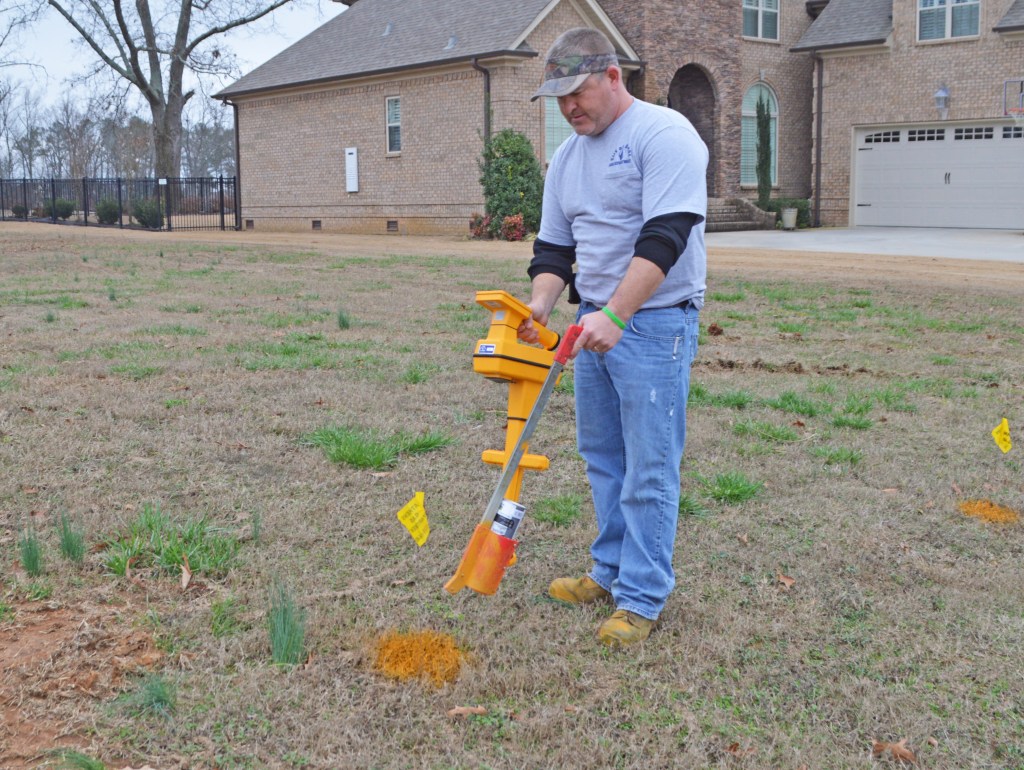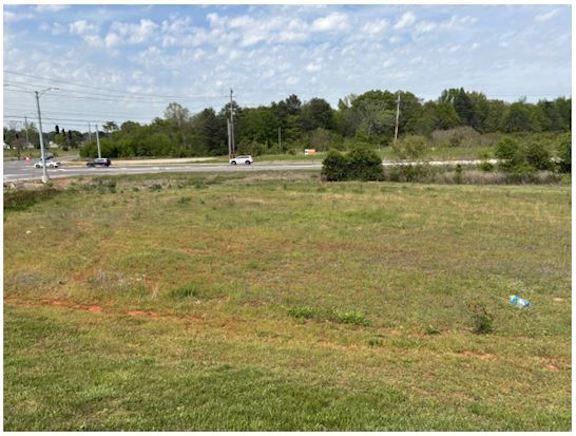Call before you dig: Contractors, homeowners reminded of buried utilities
Published 6:45 am Thursday, January 26, 2017

- Dwight Calder of the city of Athens Gas Department marks a gas line at a location on Muirfield Drive in Athens. Any type of digging in the state requires a free call to 811 before the dig.
Dwight Calder spends his days ensuring the safety of Limestone Countians and protecting contractors and homeowners’ bottom line.
Calder is a gas utility line locator with the city of Athens Gas Department, a part of Athens Utilities.
Trending
Calder and Jimmy Baucom are the department’s two locators in Limestone County. On average the men get anywhere from 50 to 100 tickets a day from residents and contractors requesting they locate buried utility lines. The tickets come from a call center for 811— a national phone number to call before digging.
Whether digging a flower bed, installing a new mailbox or building a new home, it’s important to remember to call 811 before the dig. It’s a free service in the state and it’s the law.
Calder said locators work an average of 30 locations a day. Most are residential and involve construction work, but calls can range from people preparing to put up a fence or plant a tree.
Digging without knowing the approximate location of underground utilities can result in damage to gas, electric, communications, water, and sewer lines, which can lead to service disruptions, serious injuries, and costly repairs, said officials with Athens Gas Department.
An underground utility line is damaged once every six minutes nationwide because someone decided not to call 811, according to data collected by Common Ground Alliance — an association dedicated to protecting underground utility lines and the safety of people who dig near them.
In fact, there are more than 20 million miles of underground utilities in the United States, according to CGA. That figure equates to more than one football field’s length (105 yards) of buried utilities for every man, woman and child in the U.S.
Trending
Gas Department Manager Steve Carter said according to state law it doesn’t matter if you’re digging in your yard or elsewhere on your property, if you hit a utility line and didn’t call before you began the dig — you are responsible.
“Calling saves you from liability and it certainly saves lives,” Carter said. “Why risk that when all you have to do is pick up the phone and call 811?”
In Limestone County, utility lines are hit pretty often, officials said. Sometimes a homeowner or contractor has called, but sometimes they don’t call.
Most crew members like Calder use special equipment to locate utility lines and mark the area with a spray paint and flags within a few days. Alabama requires a call to 811 at least 48 hours in advance of a digging project. After the site is marked, the marks are valid for 14 days, according to state law. The reason for the two week validity is because erosion and root growth can alter the depth and location of buried lines.
Calder said the lines are drawn with an 18-inch buffer from the center. If the area is dug within the buffer, it is required that it is dug with nonmechanical equipment like a shovel. Areas outside the buffer can be dug with mechanical equipment such as an excavator.
“Safety and liability is big,’ Calder said. “We take on a lot of responsibility ourselves. It’s dangerous and we have to make sure we are right to the best of our ability even if we have to hand dig it up ourselves.”
The dangers are real. Gas line breakage can cause the gas to ignite. Both Carter and Calder recalled one ignition call where a contract worker didn’t call to locate lines. The worker was injured and the equipment being used was destroyed.
“The dangers of natural gas is not necessarily the ignition,” Calder said. “If you breathe in natural gas and it ignites, it scorches your lungs and that’s the very dangerous part of it.”
Calder has been locating lines with the gas department for about four years. He’s been with the department for more than 14 years. His advice — it’s important to call before you dig.





